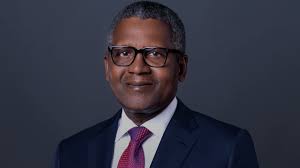Billionaire businessman and Africa’s richest man, Aliko Dangote, has called on Nigeria to put an end to health tourism and instead focus on building a strong, self-sufficient healthcare system through local pharmaceutical production and strategic international collaborations. Dangote made the remarks on Wednesday at the Gates Foundation’s Goalkeepers event, held for the first time on African soil, in Lagos.
Speaking during a panel session at the high-level event, Dangote said it was no longer acceptable for Nigerians, including the affluent, to travel overseas for medical treatment when the country has the potential to build world-class healthcare systems.
“What we need to do is make sure we stop this health tourism and start producing our drugs,” he said, urging consistent and impactful partnerships with the Bill & Melinda Gates Foundation and other global health organisations.
The Goalkeepers event brought together global leaders, health experts, and changemakers to evaluate progress on the United Nations Sustainable Development Goals (SDGs), especially in areas such as health, poverty eradication, and nutrition.
Dangote, Chairman of the Dangote Group, highlighted the role of local partnerships and private sector investment in transforming sectors that were once dependent on imports, saying the same model could be applied to Nigeria’s health sector.
He pointed to Nigeria’s successful eradication of polio as a model example of what collaborative efforts with the Gates Foundation and local stakeholders can achieve. He also warned that the country’s continued reliance on foreign health systems suppresses local innovation, deepens inequality in healthcare access, and weakens national capacity to respond to crises.
“When we are sick, we should not have to travel abroad. It is time we take health infrastructure seriously, just like we did with cement and agriculture,” Dangote said.
He cited the transformation of Nigeria from Africa’s second-largest importer of cement into a net exporter as evidence that with commitment and planning, Nigeria can achieve similar feats in healthcare. Today, Dangote Cement exports more than any other producer on the continent.
In agriculture, he referenced how the launch of the Dangote Fertilizer plant, the second-largest globally, changed access to essential inputs for Nigerian farmers. “At one time, farmers couldn’t get fertilizer. Now, we’re exporting 37 per cent of our output to the United States,” he noted.
Dangote also spoke on the energy sector, celebrating the achievements of his 650,000-barrel-per-day refinery. In May alone, the refinery exported 400,000 metric tons of petrol, marking a significant step in Nigeria’s journey to energy independence. “We no longer rely on imported petrol. That’s a huge achievement,” he said.
The Goalkeepers event in Lagos was attended by global philanthropist Bill Gates, who co-chairs the Gates Foundation, as well as Lagos State Governor Babajide Sanwo-Olu, Gombe State Governor Inuwa Yahaya, and other national and international stakeholders in development.
Dangote’s comments echoed a growing sentiment among stakeholders who believe that local investment, innovation, and private sector leadership are essential to meeting Nigeria’s health needs and broader development goals.
The Nigerian health sector has long struggled with underfunding, medical brain drain, and poor infrastructure, leading many citizens—including political elites and business leaders—to seek medical care abroad. In 2023 alone, Nigeria spent over $2 billion on outbound medical tourism, a figure many experts describe as unsustainable.
Dangote’s message at the Goalkeepers event adds to ongoing national conversations about local production of pharmaceuticals, strengthening of health institutions, and creating resilient systems that can withstand future pandemics and health emergencies.
His push for public-private collaboration is expected to inspire more local investment and potentially influence policy shifts as Nigeria aims to achieve Universal Health Coverage and other related SDG targets.
